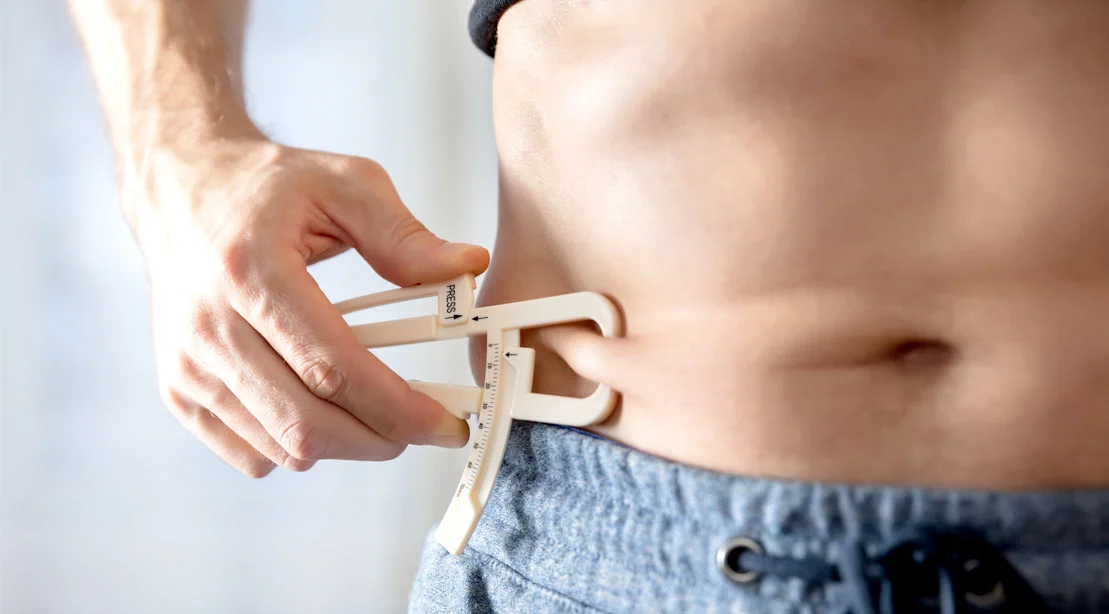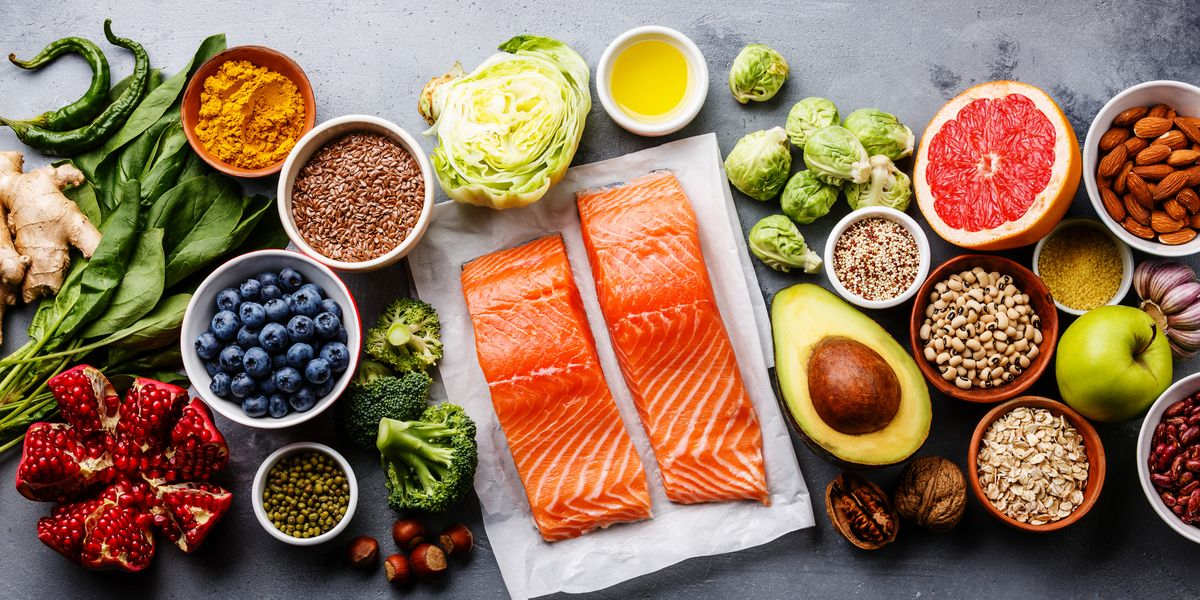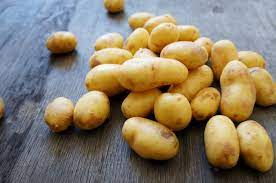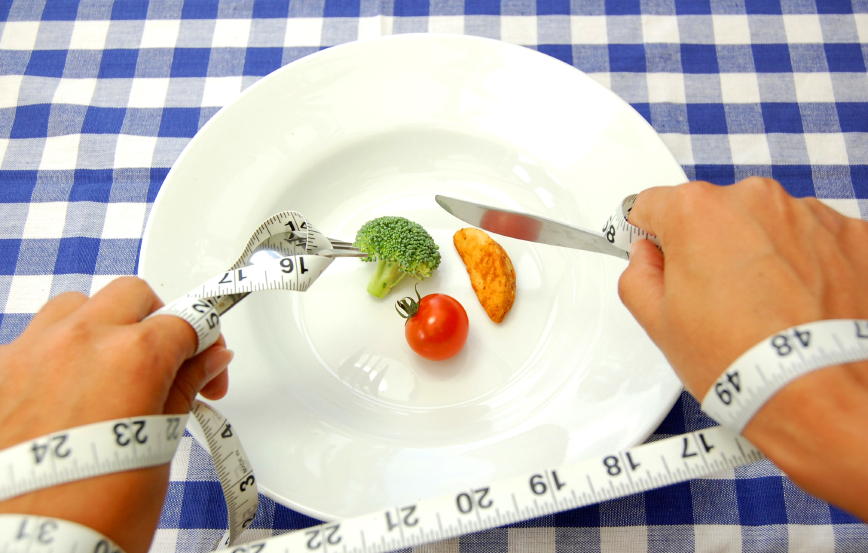10 FAT LOSS MYTHS YOU’VE BEEN TOLD (AVOID THESE!)

Fat Loss: Myths and Truths
The sheer amount of fat loss myths circulating online makes this a difficult topic to touch on.
But, I’ve narrowed things down to 10 common myths and lies you’ve probably been told. This kind of misinformation is holding you back from achieving the lean body you’re after.
This article will focus specifically on the nutritional side of things. That is by far the most important area you need to master when it comes to losing fat.
Before We Start…
I’m not exaggerating when I say that if you’re currently not seeing consistent results from your efforts, then you need to take a few minutes and apply each of these points to your program. I guarantee they will make a big difference.
Fat loss is not an overly complex process. You’ve just been led to believe that it is by all these coaches and influencers trying to sell you on the latest fads and gimmicks, or by people who just don’t know any better themselves.
In this article, I’m going to outline each myth, explain why it’s incorrect, and give you advice on what to do instead. Also, I’ll give you the “element of truth” behind each myth to give you a proper big-picture understanding. Hopefully, this advice will help you get leaner–and stay leaner–for good.
As things are virtually never black and white when it comes to fitness related topics, this should help you in the long run. The information here is not about quick fixes. Instead, this is about equipping you with the real tools you need to make permanent, long lasting changes.
Let’s get into the list:
Fat Loss Myth #1: “Calories Don’t Matter”
There seems to be a notion among a lot of fitness enthusiasts that calories don’t matter.
This is a very common narrative circulating on YouTube and various social media outlets from weight loss gurus and nutrition experts.
The idea might sound something like this: losing fat is purely a matter of eating certain foods, or spacing your meals out in a specific way (like intermittent fasting). Or, following some special macronutrient ratio, or that calories themselves are not important.
In reality, this could not possibly be further from the truth.
A calorie is just a unit of measurement that indicates how much energy there is in the foods you eat, as well as in the tissues on your body. To stimulate your body to break down stored fat, you must be in a net calorie deficit where the amount of energy you are consuming is not enough to match your energy expenditure.
As a result, your body has to utilize its fat stores to make up the difference. If intake matches expenditure, then your body can just fuel itself from the foods you’re eating and your fat stores will be left alone for another time.
Calories make up the underlying foundation of the entire fat loss process, and a calorie deficit is the most fundamental thing that must be in place if you want to get leaner. Don’t let anyone tell you otherwise.
There’s no perfect one size fits all model, but roughly 500 calories give or take below your maintenance calorie level is a good zone to aim for that’ll be large enough to stimulate significant fat loss. A deficit this size is also small enough that it can be sustained over a long term period.
The Truth:
Specifically tracking calories is not necessary for every person.
Depending on your individual situation, it can definitely still be possible to maintain a calorie deficit without consciously knowing exactly how many calories you’re actually eating.
This is dependent on how much fat you’re currently carrying, how lean you’re ultimately trying to get, and what your previous diet was like. It can also rely on your ability to select foods and manage portions based on how hungry you are while cutting.
But, this doesn’t mean that “calories don’t matter.” It just means that, in some cases, tracking calories on paper doesn’t matter. Understand that those are two separate arguments.
In addition, the other element of truth is to keep in mind that even if you are tracking calories, there’s no way to do it with 100% accuracy.
Your energy expenditure will vary from day to day depending on a wide variety of factors. There’s no way to precisely track exactly how many calories there are in every single food item that you eat. Also, different foods will behave differently in your body depending on their composition in terms of macronutrient profile, micronutrients, and fiber.
However, calorie tracking doesn’t have to be perfect in order to get the practical outcome you’re after. Even if you’re about 85% accurate, that’s still going to be good enough to achieve consistent fat loss.
So, people who use the argument that “calorie tracking is flawed, therefore it’s useless” are just jumping to an extreme conclusion. A reasonably accurate approximation will still be close enough.
Remember, something doesn’t have to be perfect in order to be useful.
Fat Loss Myth #2: “Just Maintain a Calorie Deficit”
On the other end of the spectrum, there is another notion among some fat loss “experts” that food quality doesn’t matter. To them, the only thing you need to do is just maintain a calorie deficit.
This is another statement that gets mindlessly repeated over and over in online fitness content. Unfortunately, it’s also a huge oversimplification. Even though it’s technically true, it doesn’t necessarily help people all that much in a practical sense.
Yes, a calorie deficit is what fat loss ultimately comes down to. But, that doesn’t tell you anything in terms of how to actually go about creating one in a healthy, sustainable way.
Saying “just be in a calorie deficit” is like telling someone that in order to win at basketball, they just need to put the ball through the hoop. It tells you what ultimate goal to aim for, but not how to get there.
In reality, food quality absolutely does matter. It helps keep your hunger levels minimized and provide your body with all of the nutrients it needs for optimal functioning. This aids both in and out of the gym so that you can actually maintain your deficit long term.
You ideally want to base the bulk of your diet–probably at least 80-90% –around minimally processed, whole food sources. These foods are typically less calorie dense and higher in fiber.
If you’re trying to get a large percentage of your calories from calorie dense, processed items, it’s going to be a lot harder since you won’t feel satiated. You’ll probably also be far more likely to overeat.
So, while a calorie deficit is the ultimate goal, proper food selection is one very important factor that will aid you in achieving that.
The Truth:
Technically speaking, you could eat nothing but pizza, donuts, and cookies and still lose body fat if you keep your total calories in the proper range. This is still an important concept to understand to really hammer home the fundamental importance of a calorie deficit.
The deficit itself is the primary factor at play. So, no individual food is strictly off limits or something you need to fear or avoid. Your body doesn’t view your diet in the context of individual food items.
Instead, it only sees the entire picture as a whole. It’s the total calories, macronutrients, and micronutrients that will determine your results over the long term.
If you just exercise some basic moderation, and get the majority of your intake from those nutrient dense, whole food sources, then you can still add your favorite treat foods into the mix. You can have the occasional “cheat meal” and don’t need to “eat clean” 24/7 to lose fat. Trying to do that will probably decrease your chances for success by overly restricting you.
Fat Loss Myth #3: “Fat Burning Foods”
You might have heard the following somewhere before.
“Here are the ‘fat burning foods’ you should eat that are going to significantly speed up your metabolism and cause you to lose fat at a faster rate.”
This makes for great clickbait video titles and viral social media posts. But in reality, there are no individual superfoods that are going to have some sort of dramatic effect on your results. And, there are definitely no “negative calorie” foods that will literally burn more total calories than they contain.
If adding a certain food item on top of your existing intake causes your total calories to increase overall, then it doesn’t matter what “fat burning properties” it supposedly has. It’s still going to be moving your energy balance in the opposite direction.
For example, one piece of advice you might hear is that to get leaner, you should “eat more healthy fat.” As if your daily dietary fat intake directly affects your ability to burn body fat.
Well, consuming sufficient daily fat is important for overall health and satiation. However, if you take that advice literally and you’re just aimlessly snacking on bags of almonds or bars of dark chocolate, you’re adding extremely calorie dense foods to your daily calorie intake.
Or, if you’re liberally adding olive oil to your meals or dumping sticks of butter into your coffee because you heard these foods will improve fat loss, the net result will almost certainly be a much higher calorie consumption overall.
The Truth:
Yes, there are certain foods that are less calorie dense than others and are more satiating, too. In that sense, they can support your fat loss efforts and make maintaining a calorie deficit an easier process.
For example, potatoes are the highest ranked food on the satiation index. That could be one potential benefit of including that specific food in your diet.
Berries are a highly nutrient dense food that contain very few calories for their volume. Lean protein sources are also low calorie dense and have a higher thermic effect. Vegetables are high in fiber and also very low calorie dense.
So, while there are certain foods that can have benefits as part of an overall fat loss diet, no individual food on its own is going to have some kind of magical effect or hack your metabolism.
Fat Loss Myth #4: Avoid “Fat Storing Foods”
Opposite of the previous myth is the notion of specific “fat storing foods” you must avoid.
We already touched on this as it was one of the elements of truth from before. Understand that no particular food just goes “straight to your fat stores” when you eat it.
As we’ve discussed, the cause of fat gain is not from any individual food or macronutrient on its own. The cause of fat gain is consuming too many calories from your entire diet as a whole.
The Truth:
While there’s technically no such thing as a “fat storing food,” it’s still important to recognize that high calorie dense foods are much easier to overeat. So, you do need to be a lot more mindful with them. If you’re not, the total calories are going to rack up very quickly.
Not only that, but high carb, high fat foods will also have a lower thermic effect. This means that your body won’t burn as many calories digesting those foods in comparison to higher protein foods.
Protein has a thermic effect of around 20-30%. Carbs are only about 5-10%, and fats are 0-3%.
On top of that, minimally processed whole foods also require more energy to digest compared to highly processed foods. The overall difference from those things isn’t going to be huge, but it is one factor to take into account. You need to realize, though, that it does influence your daily calorie expenditure in a small way.
Also consider that those hyper palatable items can also potentially act as “trigger foods.” Eating them may cause you to crave even more, which can then have a spiraling effect. 2 cookies on their own might not be an issue, but if 2 cookies leads to 4, and 4 leads to 10, those calories can definitely add up. If this is happening on a regular basis, it can make a real dent in your progress.
This will affect everyone to differing degrees. It just comes down to knowing yourself and your own psychology. You need to decide exactly how much “treat” food you’re realistically able to add into your diet without it snowballing out of control.
Fat Loss Myth #5: Intuitive Eating
Some argue that the best way to lose fat is to just “listen to your body” and eat intuitively based on your hunger levels and cravings.
The prevalent notion might sound something like this:
“Just honor what your body desires and don’t actively restrict anything.”
Now, this sounds nice in theory. However, the huge problem with this approach (and the major flaw people who promote this idea overlook) is that the environment we live in now is drastically different from the environment that our bodies evolved in.
We’ve been programmed over the course of millions of years to consume calories when they’re present. We crave and get significant pleasure from high fat, high sugar foods because in the past, those were extremely rare to come by and they were an efficient source of calories.
Whereas now, we’ve created an environment where calorie dense food is absolutely everywhere in unlimited quantities. We’ve now engineered that food to be as hyper palatable as possible.
So if you truly “listen to your body” and eat purely based on instinct and on what feels best, in most cases, this mindset will just lead to overeating.
Just like how you need to manually control your temptations in all areas of life, food is no different. If you want to lose fat, then you’re going to need to use your rational mind and create structured systems to prevent those hard-wired desires from taking over. Our brains are not biologically optimized for the current environment we live in.
The Truth:
If you have a reasonable foundation of nutritional knowledge and fitness experience, and you’re making intelligent food choices overall, then yes, you can probably eat based on “feel.” If you’re not literally eating whatever you crave the most at all times, you can still lose fat or stay lean.
This is especially true if someone is carrying a significant amount of excess fat. If their previous diet was very poor, just generally cleaning things up and being a bit more mindful of portions can go a long way. This will work at least in the initial stages until they get leaner.
Once again, not everyone has to track calories on paper if they’ve set their diet up in a way that makes over-eating far less likely by default. Just make sure to base your own intake around nutrient dense whole foods, get enough protein, space your meals out in the way that controls your appetite best, and drink plenty of fluids.
Combine that with a solid resistance training program and some additional movement throughout the day, and you’re good to go. Those factors combined could put you into a calorie deficit without you needing to look at any specific numbers.
Fat Loss Myth #6: Low Carb Diets are Superior to Fat Loss
This way over-simplified line of reasoning usually goes something like this.
“When you eat carbs, you raise insulin, and insulin tells your body to store fat. Therefore, you won’t lose fat by eating carbs.”
Yes, insulin is technically a storage hormone, but fat loss still comes down to how many calories there are to be stored or not stored for the day as a whole. You can’t magically override basic thermodynamics. Total energy in versus total energy out will always dictate net fat loss.
When you restrict carbs, you’re going to see more initial weight loss because you’ll retain less water and store less glycogen. This is why people often get the false idea that low carb is so effective since they see that big initial drop in weight.
But as far as actual fat loss goes, when total calories and protein are the same, low carb diets are no more effective than moderate to high carb diets. This includes ketogenic diets as well.
For example, take this meta analysis published by the American Gastroenterology Association. In it, the researchers looked at over 20 controlled feeding studies where calories and protein were equated. They concluded that there was no advantage to carbohydrate restriction.
The Truth:
Low carb diets might “burn more fat” if you personally prefer eating that way and it allows you to stick to your calorie deficit more easily over the long term.
When it comes to macronutrient ratios, as long as you’re getting in sufficient protein for the day, how you allocate your carbs and fats is really just a matter of individual preference. You can experiment to see what feels best for you. If that’s low carb, then that’s totally fine.
If it’s moderate to high carb, that’s completely fine as well. Carb intake inherently is not going to hinder your fat loss as long as you’re in a net calorie deficit.
If we just logically look at the real world, we see people on all ends of the spectrum who have successfully lost fat using any number of different approaches. From low carb, high fat, high protein; to high carb, moderate fat, moderate protein; to everything in between.
The common denominator is always the calorie deficit.
Fat Loss Myth #7: Intermittent Fasting Results in More Total Fat Loss
Looking at the meal frequency side of things, you might have heard that intermittent fasting results in more total fat loss.
Once again, when total calories are equated, there is no clear advantage to using a fasting protocol versus having regularly spaced meals. Neither one is inherently better or worse. It’s just that with intermittent fasting, you’ll lose more fat during the fasted period since you’re not eating anything at all.
I find it kind of funny how fasting proponents point this out as if it’s some sort of unique insight. Of course, when you’re not eating, anything you do will utilize more body fat. However, when you do eat, you’ll store more fat during that period. This is because you’ve condensed a disproportionately higher number of calories into a shorter time frame.
Fat loss and fat storage are not simple “on/off” switches. They’re both happening simultaneously all the time. It’s the sum total of these processes at the end of the day, week, and month that determines net fat gain or net fat loss.
With continuous feedings, say 4 meals a day every 4 hours, things are just more evenly spaced throughout the day rather than happening in two larger spikes.
The Truth:
But just like with low carb diets, fasting can result in improved fat loss if you personally prefer it.
So, if you find that intermittent fasting controls your appetite better and makes it less likely that you’ll over eat, then go for it. Maybe you just prefer the simplicity of it, or feel better physically or mentally by fasting during certain parts of the day.
I personally use intermittent fasting myself, 16 hours fasted and 8 hours fed. This is part of my routine not because it has any special fat burning benefits calorie for calorie, but simply because I prefer allocating my calories to a bit later in the day. I also like having a smaller number of larger meals versus a larger number of smaller meals.
When it comes to meal frequency in general, just lay things out in whatever way you personally enjoy the most and can sustain long term.
There is one caveat here though. If you want to fully maximize muscle growth, you ideally should aim for 3 separate daily protein feedings or more. Total protein is still by far the most important factor. But, if you want to achieve 100% of your potential muscle gains, 1 or 2 daily protein feedings probably won’t be optimal.
Read my article on how to eat to gain muscle if you want to learn more.
Fat Loss Myth #8: Feeling Hungry Means You’re Restricting Yourself too Much
On the issue of appetite is the idea that you should never be hungry during a fat loss diet. Or, if you are, it means that you’re overly restricting yourself and you need to eat more.
In reality, this is just wishful thinking. The idea that you can eat in an ongoing surplus for weeks, months, or even years and enjoy those extra calories that caused the excess fat gain, but that there’s no price to pay and no sacrifice involved to go in the opposite direction, is not how life works.
The truth is: if you never feel any background hunger at certain periods in the day, chances are that you’re probably not in a calorie deficit in the first place. If you’re consistently burning more calories than you consume, your body is going to send out hunger signals to some extent to motivate you to eat.
If someone is carrying a significant amount of excess fat and their previous diet was very high in calorie dense processed foods, then hunger might not be an issue in the initial stages. But as you get leaner and maintain a deficit over time, feeling some degree of hunger at some points in the day is totally normal.
Hunger doesn’t necessarily mean something is “wrong.” It’s not going to send you into starvation mode. It’s a natural part of the fat loss process, and the key is to minimize it rather than expecting to eliminate it completely.
It’s important to acknowledge this up front before you even get started. You need to create a proper mental relationship to that hunger and view it as something to be expected and not as a signal that you should immediately run to the fridge.
The Truth:
While a moderate amount of hunger is normal, you shouldn’t be excessively hungry. I’m talking about to the point where you feel extremely uncomfortable, and where it interferes with your daily tasks. In that case, your calorie deficit is probably too big, or you need to adjust your food choices to create more total volume relative to your calorie consumption. There could be other issues at play as well.
Also keep in mind that this is not a permanent thing. You’re in a calorie deficit in order to reach your fat loss goal. But once you do get there, you’ll be able to increase your calories back up to maintenance.
The hunger aspect is just a temporary part of the process that you have to work through. However, if you’re trying to get very, very lean, hunger will probably be an ongoing issue that you’ll have to deal with in order to permanently stay in that condition.
Fat Loss Myth #9: “Slow and Steady” is Always the Best Way to Lose Fat
A bit of a controversial “myth” is the idea that slow and steady is always the best way to lose fat.
Some argue that you should always create a smaller calorie deficit and just focus on losing fat at a gradual pace from week to week.
The Truth:
In most cases, for the majority of individuals, this will be the ideal way to go about things. The slow and steady approach will keep hunger, energy, mood, libido, etc. under control. As a result, it’s going to be more sustainable.
However, depending on the goals, experience level, and mindset of the individual, there can be a place for more aggressive cutting phases. I’ve written about this before on the subject of how to do a “mini cut” to lose excess fat during a bulk.
Muscle loss typically won’t be a concern in the shorter term. Just make sure to keep protein intake high and continue with a solid weight training program. If you’d really prefer to just grind through a larger calorie deficit and get it over with more quickly, that is an option.
For example, instead of a 4 week mini cut at a 500 calorie deficit, maybe you go harder for 2 weeks with a 1000 calorie deficit.
This is something I personally do from time to time. I don’t mind suffering a bit more if it means that I’ll get the same outcome over a shorter time frame. But, that’s just me and everyone is different.
Faster cutting phases can be fine, but generally speaking it’ll be best suited to those with a bit more experience. You really need to know how to structure and implement it properly. If you are using a more aggressive deficit, then it should probably only be done over a shorter period in order to prevent muscle loss.
Fat Loss Myth #10: Fat Burners
Last but not least is the myth behind fat burners.
Now, I’m not saying that all fat loss supplements are completely useless and will have no benefits at all. But in most cases, I would say that they do tend to be very over hyped for what they actually are. Many times, these products are just an over-glorified mix of various stimulant compounds. You need to be very conscious of the many fat burner scams out there.
There are non-stimulant fat loss ingredients available as well. But the research in that area is generally pretty lackluster, and if the non-stimulant compounds are effective, it’s probably only to a very small degree.
Proper diet and training will make up the overwhelming majority of your fat loss results. Please don’t fall for the marketing and falsely believe that fat burners will have some kind of drastic effect. They just won’t, plain and simple.
Basic staple supplements like protein powder, creatine, a multivitamin, and fish oil are obviously fine as part of an overall fitness approach.
RealScience Athletics
You can check out my own products that I personally formulated at realscienceathletics.com for supplements that are worth your while. Use code youtube15 to take 15% off your first order.
But for fat burners specifically, if further research comes out, I could be proven wrong. As of now, I just don’t see them as being worth your time in most cases.
The Truth:
Now the phrase “most cases” is where the element of truth comes in.
For a smaller percentage of people who have their diet and training fully dialed in, fat burners can provide some benefit. I’m talking about those people who can tolerate stimulants well or just want to experiment with some of the non-stimulatory compounds. In those cases, fat burners can potentially provide a very small extra edge.
The use of fat loss supplements is an option as long you understand that the benefits will be minor.
Also, keep in mind that these supplements are not literally causing you to burn significant amounts of additional fat. Instead, taking the stimulant compounds will make you feel more energetic and upbeat during periods of calorie restriction. You’ll probably get an appetite suppressing effect, which can make the dieting process a bit easier.
Recap
Here are the 10 fat loss myths we covered above:
- Calories don’t matter
- A calorie deficit is everything
- Fat burning foods
- Avoid fat storing foods
- Intuitive eating
- Low carb diets
- Intermittent fasting
- Hunger is always bad
- Always cut slowly
- Fat burners
Feel free to share your own experiences with any of these myths in the comments below.
If you found this article helpful, make sure to sign up for your FREE custom fitness plan below...









